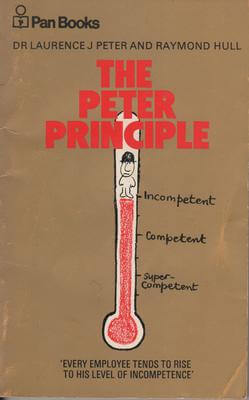
In the world of professional development, the Peter Principle is a concept that organizations must pay close attention to, especially when it comes to ensuring the effectiveness of their security teams. This principle, which highlights the pitfalls of promoting employees beyond their level of competence, can have significant consequences in high-stakes industries like security. In this post, we’ll explore what the Peter Principle is, how it applies to security guards, and the proactive steps we at Six Maritime take to mitigate its effects.
What Is the Peter Principle?
The Peter Principle, first introduced by Dr. Laurence J. Peter in 1969, is the idea that employees in an organization tend to be promoted based on their performance in their current role, rather than their abilities to succeed in the next role. Over time, this results in employees being elevated to positions where they are no longer competent, which can hinder the overall effectiveness of a team or organization. For security officers, this might mean promoting someone to a leadership or specialized role without equipping them with the necessary skills or training, which can compromise safety and operational efficiency.
How to Avoid the Peter Principle in Security Roles
Avoiding the Peter Principle requires a proactive and intentional approach to recognizing talent, providing training, and ensuring that promotions are based on readiness rather than tenure. The key is to focus on continuous skill development and to create systems that evaluate employees based on their ability to handle the responsibilities of the next role, not just their current performance.
At Six Maritime, we take deliberate steps to ensure our security officers are well-prepared for advancement by emphasizing professional growth and readiness. By addressing potential skill gaps early, we help our team members succeed in their roles and prevent them from being overwhelmed by responsibilities they are not prepared to handle.
Six Maritime’s Approach to Training and Development
To combat the Peter Principle, Six Maritime has developed a robust training program that equips our security personnel with the skills and knowledge they need to excel at every stage of their careers. Here are some of the key components of our training approach:
- Scenario-Based Training for Use of Force: Use of force is a critical area of expertise for security officers. By simulating real-life scenarios, we ensure that our security officers are prepared to make quick, informed decisions in high-pressure situations.
- Crewman’s Course and Basic Coxswain Skills Course: For maritime security roles, we provide specialized training such as crewmen’s courses and basic coxswain skills courses. These programs enhance technical competence and operational readiness on platforms that are not very common in the security industry.
- Incident Command System (ICS) Training: ICS training develops leadership and coordination skills, enabling security personnel to effectively manage incidents and work collaboratively with teams in complex situations.
- CPR and First Aid Certification: Emergency response skills are non-negotiable in the security field. Our officers are trained and certified in CPR and First Aid to ensure they can act quickly in medical emergencies.
- MTSA/MSA Training: Understanding and complying with Maritime Transportation Security Act (MTSA) and Maritime Security Act (MSA) regulations is critical for security personnel working in maritime environments. Our training ensures officers are well-versed in these standards to enhance port and vessel security.
- Continuing Education Courses: Regular refresher courses ensure that security personnel stay up to date on industry best practices, security protocols, and incident management. These courses reinforce foundational skills and keep our teams sharp.
Conclusion
The Peter Principle is a challenge that every organization must address, especially in industries like security where competence and preparedness are critical. By understanding this concept and implementing strategies to avoid it, organizations can ensure that their teams remain effective and capable. At Six Maritime, our commitment to continuous training and skill development helps us prepare our security personnel for success, no matter their role. By investing in our team’s growth, we create a stronger, more capable workforce—and that means better results for our clients.
